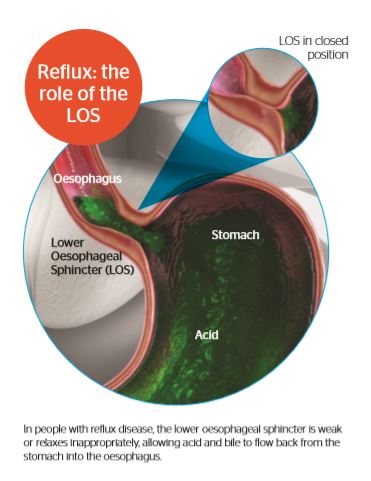Reflux Disease 
and your treatment options
What is Reflux Disease?
Reflux (also called Gastroesophageal reflux disease, or GORD) is a chronic digestive disease in which acid and bile flow back from the stomach into the oesophagus, creating pain and often causing damage to the lining of the oesophagus.
What Causes Reflux Disease?
Reflux disease is caused by inappropriate relaxation or weakness in a muscle called the lower oesophageal sphincter (LOS). Normally the LOS acts like a one-way valve, allowing food and liquid to pass through to the stomach, but preventing stomach contents from flowing back into the oesophagus.
Complications of Reflux Disease*
In addition to producing a wide range of symptoms, reflux disease can lead to potentially serious complications including:
- Oesophagitis (Inflammation that can damage the tissue of the oesophagus)
- Stricture (Narrowing of the oesophagus)
- Barrett’s Oesophagus (Pre-cancerous changes to the tissue lining the oesophagus)
- Oesophageal cancer (in rare cases)*
In people with reflux disease, the lower oesophageal sphincter is weak or relaxes inappropriately, allowing acid and bile to flow back from the stomach into the oesophagus.


